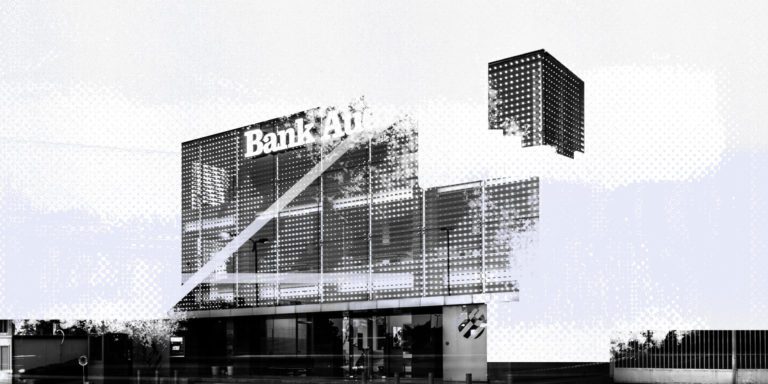The way to recover depositors’ money, as is normally the case in a banking catastrophe, should have been a clear-cut financial plan. It starts with defining the responsibilities and sources of losses and ends with identifying the mechanisms to address the budget gaps with a capital control law to maintain liquidity in the banking system.
It was assumed that distribution of responsibilities and sources of losses would be the criterion to determine who was to bear the main losses, while preventing owners of small and medium size accounts from seeing a deduction in the value of their deposits.
However, after two years and four months of financial collapse, it is painfully clear that nothing indicates the imminent birth of such a plan.
The criminal audit, which is supposed to be a tool for determining responsibilities, is still pending settlement, which worries many centers of influence in financial and political circles.
As for the financial plan, the Mikati government transformed it into a comprehensive deposit liquidation plan, by charging the depositors with the bank’s losses and paying deposits back in Lebanese pounds. This is what blocked approval by the International Monetary Fund (IMF).
To sum things up: the financial plan in its final form has not yet seen the light of day, while the capital control law has been turned into a tool to legislate the foreclosure of deposits, instead of being a means of regulating liquidity in a banking system on a path to recovery.
The above only confirms that legal action, although it will not succeed in refunding all depositors due to the large accumulated losses, is the last and sole weapon to establish the depositor’s right to his money and to prevent the normalization of the status quo.
The inflexibility and stubbornness of the most influential people in Lebanon’s financial and political sectors has prevented the recovery of funds through a fair plan for depositors. Lawsuits are the only tool left to pressure the banking sector to initiate a path to formulating a plan that could lead to the return of at least some money.
Mentioning the latter in particular is of importance today in order to respond to the banks’ argument that the judicial track is futile, as they do not have sufficient liquidity to pay back all deposits, even if the courts decide in favor of depositors.
However, to show the legal path’s ability to put pressure on the banks, it suffices to point at the confusion that judicial rulings have created in banking circles, whether they stem from domestic trials that have resulted in seizing bank assets or European trials that threaten the assets of Lebanese banks abroad.
Read Also:
Banking on Fransabank
Most recently, Fransabank closed all its branches following a legal order to freeze its assets based on a lawsuit filed by Egyptian depositor Ayad Ibrahim. Judge Mariana Anani ordered the bank to pay out his deposit in cash or see its assets seized.
Signs of seizure were placed to prevent the bank from selling or mortgaging assets. They must remain as a guarantee for the depositor until the value of his deposit is paid back, which amounts to some $60,000, according to the bank.
Immediately after the legal order was issued, it became clear that Fransabank would opt for an organized form of “blackmail” to end the seizure by halting all banking services and refraining from paying salaries of both public and private sector employees.
Although the judge limited the procedure to only two branches, the bank insisted on informing the media of its decision to suspend salary payments across all its branches. Likewise, the Association of Lebanese Banks issued a statement that threatened to declare a banking strike in protest of Judge Anani’s ruling, which would paralyze any financial movement in the country.
The ALB also warned for repercussions on the relationship of Lebanese banks with correspondent banks, hinting that judicial procedures might interrupt Lebanon’s relationship with the global financial system.
It seemed even the government mobilized to defend Fransabank. It issued a statement, claiming the legal decisions “would undermine the remaining confidence in the banking system” and warned that depositors were to pay the price for such measures.
Clearly the Council of Ministers has decided to try to twist the arm of Lebanon’s judiciary, pushing it to reverse its decisions. Never mind such behavior violates the separation of powers (trias politica), which ensures the government does not interfere in the legal process.
Ghada Aoun’s Investigations
In parallel with the case against Fransabank, legal inquiries conducted by Mount Lebanon Public Prosecutor Judge Ghada Aoun have taken place at an accelerating pace. At first, these investigations focused on the loans worth over $8 billion, which Lebanese banks obtained at the beginning of the banking crisis.
These “fresh dollars” were transferred abroad, while the banks later paid back the loans using their accounts at the Lebanese Central Bank (BDL) in “local dollars.” In other words, the banks were smuggling what remained of their deposits at the BDL to accounts abroad, while they refrained from paying their depositors. These investigations not only condemn the banks, but also the BDL for being complicit.
So far, Aoun has seized properties of five banks, in addition to issuing legal orders against the chairmen of these five banks banning them from selling real estate, cars or shares.
She also issued a travel ban on Creditbank Chairman Tarek Khalife and froze all the bank’s assets, including properties and vehicles, as part of an ongoing investigation. More is likely to come, as Aoun is investigating 13 more banks.
Note that this is arguably the country’s most prominent file, which prompted Judge Aoun to issue subpoenas and a travel ban against the BDL Governor Riad Salameh, when he refused to attend the investigation. Aoun has not been able to implement the subpoena.
Political calculations cannot be separated from the file. Aoun’s investigations related to the bank loans, come at a sensitive time ahead of the parliamentary elections. The Free Patriotic Movement (FPM), to which Aoun is linked, needs to record some achievements.
At the same time, the file is another tool to put pressure on the BDL Governor whom FPM head Gibran Bassil is keen to see replaced with someone closer to his party. Perhaps the “Aounist fingerprints” on Judge Aoun’s decisions are most visible in her accepting Cedrus Bank from all measures she has taken so far.
However, despite such political dimensions, it must be said that her investigations revealed numerous violations, which saw billions of depositors’ money being smuggled out of the country at the start of the crisis. They also revealed some of the secretive BDL deals that were made, which led to the arrest of the BDL Governor’s brother Raja Salameh.
Thus, depositors have come to know some of the facts related to the financial meltdown and the fraudulent operations on the sidelines. As for the lawsuits and legal orders, such as the one leading to the seizure of Fransabank’s assets, they will remain a means of pressure in order to come to a final plan and solution for the duped depositors. And they remain the most important tool to fight the fait accompli the financial and political elite are trying to impose.
Read Also:








